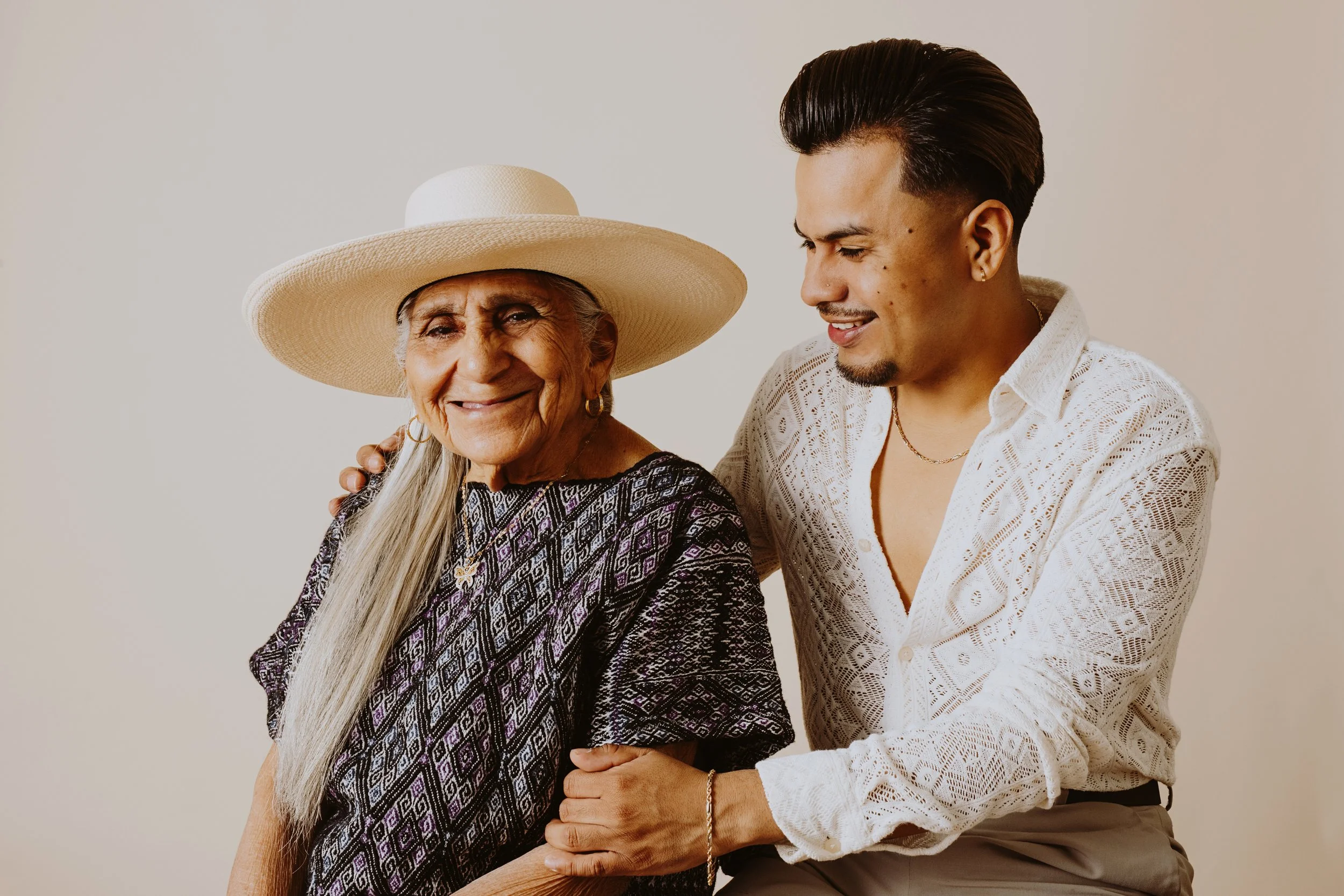Writing
SPIRIT & Nation
I am afraid to say this, but the more I think about the solution offered for my predicament as an undocumented person in this country, immigration reform simply seems to be a band aid for the mass displacement my family has suffered. For me and my family, immigration reform is a drop of water provided to quench the thirst that has rested on our tongues for years.
My Abuelita tells me I come from a small pueblito called Atoyac de Alvarez, a place I have no memories of, a place so distant in my imagination I must trace her wrinkles to remember. In Nahuatl, “Atoyac” means a place by the river. When she speaks of where I come from, her fondness for the land, mountains, rivers, and terrain is evident. Hers is a sensibility I have lost since I grew up in the living room of a small two-bedroom apartment in Eastside San Jose.
I came to this country at the age of three. My earliest memories were of Saturday morning cartoons as my Abuelita prepared tamales that we sold in the streets. The steam of the pots would seep into my skin and I learned that this sensation was what home felt like. Since an early age I knew that home was not the apartment number we lived in or the street we walked down collecting bottles and cans. Home was not this city, state, or country. To me, home was interlocked in my Abuela’s trenzas, the comfort I felt holding her hand as we crossed the street, in the warmth I felt laying next to her as we slept. Home was in knowing that one day we would return back and pick up where she left of. Regrow our coffee fields and grind our corn to make Nixtamal for tortillas.
Growing up with elders, I always knew that I was not destined to die here, to be buried under soil that my spirit does not recognize. In my Abuela’s prophetic voice, I hear the need for me to return to the place of my birth. To see with my very eyes the mountains that make you feel closer to God, to taste the soil that makes you feel you are tasting your own skin, to bathe in the river that runs through my veins.
I am aware that this battle we are facing as displaced migrants is also spiritual; it is a battle against our ways, our ideals, and ourselves. While this country offers us progress, concrete, and tall buildings, our pueblitos offer us very simple things: the reminder that we come from somewhere, that the spirits of our grandparents live in these dilapidated mud houses and dried up fields. We come from strong backs and working hands, mud bricks held together by our own sweat. Our pueblitos have become a manifestation of our spirits in this country, slowly crumbling but standing strong.
To be honest with you, I no longer know if I do indeed want to be American. I do not know if I see myself losing part of who I am in order to be integrated into this burning house. I no longer know if I am willing to denounce the place of my grandmother’s birth in order to claim the ghetto I grew up in. There is a constant confusion, a tug of war between my spirit and this nation.
As I am getting older and I see my Abuelitos getting ready to return home, I am learning that freedom is not something that can be granted you; it is something you must find within yourself. I am learning that with the more conversations I have about immigration reform, the more my spirit tells me that none of that matters anymore because the root of our problems lie in the spirits of those politicians that are playing a political football game with our lives.
This place my Abuelitos took me away from years ago, a place I have no memory of, is the only reminder that I have a home. So when it all comes crashing down and these buildings collapse onto themselves, that little piece of land where my grandmother walked barefoot will call me back. I will be whole again.
I have a home. It is not here, and though I may be displaced and caged within my own fears of my homeland, I know that one day I will return and mud brick by mud brick, I will build a new life.
SUMMER
Abuela wakes me up at 8. It is a Saturday morning and though most kids are up at this hour watching cartoons, Abuela already has breakfast served for me. The sun is already blazing and slowly taking over the streets of East San Jose.
After we are done drinking our café con bolillo, we head out the door and I follow Abue as she picks out a shopping cart that will be our helper for the day. We begin walking down the street. She pulls the shopping cart from the front as I lean my arms pushing through the back. The wind blows her long white hair and I imagine she is a river, a powerful body of water that carried me here.
She looks back at me and on her wrinkled face there is sweet smile. I smile back and though I begin to get frustrated that the sun is beating against my skin, I say nothing because she has always told me to be grateful for the light of day.
We stop at a big green house. The grass is neatly trimmed and the windows are crystal clear. Abue makes her way to the back of the house as I take a break and sit under a bush for shade. She comes back carrying a trashcan filled with bottles. Her small body bending as she struggles to pour them into our cart. I run to help her but she tells me to stay put, that I’m too small and might get hurt. I watch her as we go from house to house repeating this routine, the sun increasing in its intensity.
The houses on this block are beautifully painted, surrounded by rose bushes and a silence that takes over the street. I imagine what it must be like to live in a place where there is no noise, where everything rests in its proper place. I begin to dream of the day in which I will be old enough to buy a house. I want a big room for my Abuelitos, a room for my brother, and one for me.
As we continue walking, I see kids playing in their front yards. They pass a ball around and as soon as they take a look at me, they stop and stare. Their eyes look at me like I am something strange.
By this point our cart is filled with so many bottles that the rattling takes over the street. Abue pulls the cart with force and for some reason, I freeze. A slow fire begins to burn in the pit of my belly and the blazing sun helps it turn into rage. Out of nowhere, I get mad. I want to stop pushing this stupid cart and run home. My mind begins filling up with all the questions I know are impolite to ask.
Abue turns back and sees me standing there. She shouts, “Gordo, apurate!” I look at her and she can see the anger in my eyes. She knows this rage, she knows this fire. She stops pushing the shopping cart and walks toward me.
“Que tienes, mijo?”
I ask her, “Why don’t you have real job? Why do we always have to come and look through people’s trashcans? Why can’t we have a house? ”
She wipes the sweat from her brow, rests her hand on her waist, and looks down at me. “Pues mira, mijo. We are not in Mexico no more. Things are different here. Yo ya estoy muy vieja para entender muchas cosas. Yo no tengo tu intellencia, pero yo se que no siempre vamos a tener que trabajar haci.”
I look back at her, her dark skin shining against the sun. I want to be a big tree and have my shadow protect her from these feelings of shame. Tears begin to well up in eyes and I become mad at myself for being mad at her.
She grabs my hand. “Andale, ya vamonos. Cuando vendamos estas botellas te voy a comprar algo.”
We walk back toward the cart and begin to push again. Our rattling presence echoes through this silent neighborhood.

